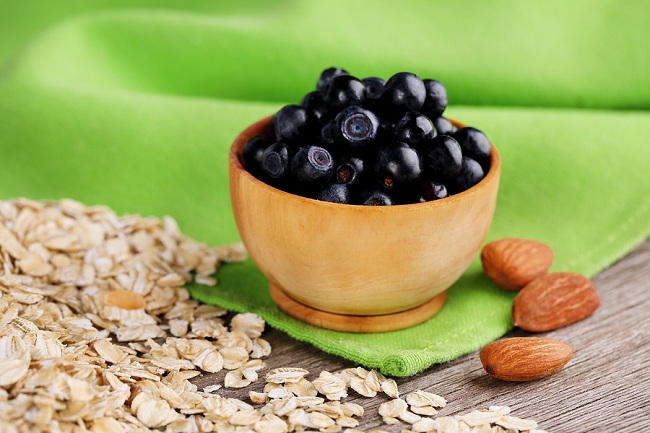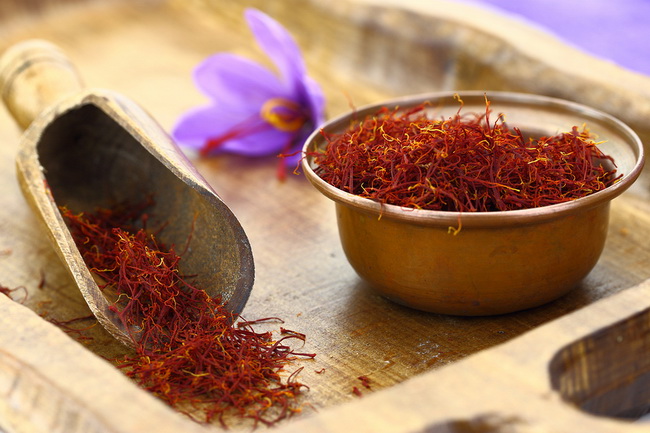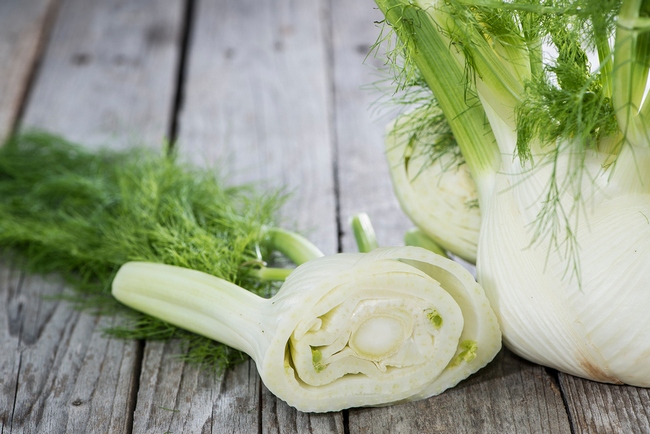- Make It Yourself Lavender Heart-Shaped Bath Bombs!
- 20 Things You Never Knew About “Down There”
- 12 Best Foods For Those Suffering From Arthritis Pain
- 12 Personal Hygiene Mistakes Almost Everyone Makes (Mom Never Told You About #4!)
- 15 Medicinal Plants And Herbs From The Cherokee People
- 12 Mind-Blowing Benefits Of Drinking Coconut Water During Pregnancy
- 12 Outstanding Winter Foods That Won’t Fatten You Up Like A Christmas Turkey
Best 12 Herbs to Support Healthy Eyes

Photo credit: bigstock.com
Our eyes are perhaps one of our most valued, and most valuable, of all our senses. We read, surf the internet, watch our children grow, and connect with loved one through these organs that are often referred to as “the windows to the soul.” However, they can encounter problems, from simply being dry to becoming blood shot, to serious diseases that can lead to blindness.
Whether you are looking for keep your eyesight as healthy as possible, or to try to restore it back to better health, we have a list of 12 herbs that are known to help support healthy eyesight.
1. Cannabis
Whether you smoke it or eat it, cannabis has terrific benefits for the eyes. In fact, studies show that persons who smoked cannabis had lower eyeball pressure for as long as 3 or 4 hours afterwards. Our eyes even have cannabis receptors, almost as if Mother Nature intended us to use this herb to support our eyesight. However, cannabis can be a reason for dry eyes. Some of the downsides towards using cannabis are such side effects as red eyes, reduced blood pressure, oh yes, and that high feeling that is not always desirable. If you live in an area where cannabis is still illegal, this is another obstacle. The good news here is that, since research shows that the eye has cannabinoid receptors, some companies are looking into eye drops that contain cannabinoids to help improve vision health.
2. Eyebright
Well, the name alone should give you a clue that this herb is well known for its support of eye health. Eyebright has small flowers that look like eyes, and studies show that it can soothe itchy or red, irritated eyes, and give relief for those suffering from conjunctivitis. One study followed 12 ophthalmologists and general practitioner doctors in Europe where they were asked to give eyebright eye drops to subjects that had inflammatory conjunctivitis. More than 81 percent of subjects had complete recovery after just 1 dose and significant improvement in another 17 percent of subjects.
3. Turmeric
Turmeric is well-known for its health and medicinal benefits, including supporting healthy vision. By reducing oxidation of the lens of the eye, turmeric can be super beneficial for those who are over 50. Research shows that oxidation of the lens of the eye is one of the major causes of eye problems in those over 50 years of age. Turmeric is also one of the best anti-inflammatories on the plant, which means it can drastically reduce dry, itchy eyes.
Continue to Page 2

Photo credit: bigstock.com
4. Grape Seed Extract
Grape seed extract has received a great deal of attention lately for its wide range of health benefits, and to top it all off, it is also one of the best extracts for vision health. Grape seed extract is recommended for all types of eye disorders including; cataracts, eye strain, macular degeneration, and diabetic retinopathy. What makes grape seed extract so eye friendly are the numerous phytochemicals including flavonoids, vitamin E, linoleic acid, and oligomeric proanthocyanidins. In fact it’s this last phytochemical, oligomeric proanthocyanidins, which are known for their powerful antioxidant and antihistamine compounds.
5. Coleus
This herb contains a compound called forskolin. There are currently eye drops on the market that contain forskolin because this compound reduces the production of fluid within the eye, which reduces pressure. Coleus (coleus forskohlii) might be a valuable solution for the treatment of glaucoma.
6. Bilberry
Bilberry is a fascinating herb with an interesting history. During WWII, British pilots reported that eating the fruit from bilberry bushes greatly helped to improve their vision at night. This is probably because bilberry contains high levels of anthocyanosides, which help improve blood flow to the smallest blood vessels in the body, which would include the eyes. Anthocyanosides are also strong anti-inflammatories and have antioxidant effects. Bilberry (vacinium myritillus) can help many common eye problems such as macular degeneration, reducing inflammation of the retina, and retinopathy. Combining bilberry with zinc and ginkgo biloba makes a powerful tonic that is said to help prevent vision loss.
Continue to Page 3

Photo credit: bigstock.com
7. Green Tea
Yep, healthy eyesight is just a cup of tea away. In fact, placing green tea bags over the eyes can help reducing swelling and fluid around the eyes, eliminating those puffy dark circles under the eyes. With high levels of antioxidants and tannins, green tea also contains caffeine, which helps to tighten the skin and reduce the swelling around the eyes. Tannins have astringent compounds which reduce the dilation of capillaries around the eyes, which can reduce the appearance of dark circles. Green tea contains vitamin E, vitamin C, lutein, and zeaxanthin, which has been shown in several studies to be effective for keeping the eyes healthy.
8. Goldenseal
Goldenseal is well known for its antibiotic, astringent, and anti-inflammatory compounds that work well at fighting cold and flu symptoms, but these same healing agents are also excellent for improving the health of our eyes. Goldenseal is an excellent eyewash, which will reduce irritation. Goldenseal is also a quick and safe treatment for infections of the eyes, such as staph or trachoma, and sties that are triggered by common allergies.
SEE ALSO: Top Home Remedies to Improve Eyesight
9. Saffron
This spice, often used in cooking, has been linked to improved eyesight, especially for those suffering from cataracts. One trial has subjects consume saffron supplements, and every single subject reported that they had improvements in their vision to some level. This led researchers to state that saffron might be a key for preventing the loss of vision, especially among the elderly. In subjects who had early stage age-related macular degeneration, one study showed that saffron improved retinal flicker sensitivity.
Continue to Page 4

Photo credit: bigstock.com
10. Fennel
Fennel is known for strengthening the eyes. If you often have watery, inflamed, red eyes, fennel can provide you with some relief. Using fennel tea as an eyewash can also help cases such as glaucoma and cataracts. One study performed in 2008, showed that one single drop of fennel seed extract showed that it significant ocuhypotenstive activity in the intraocular pressure. This study showed that fennel has a promising role as a possible anti-glaucoma treatment in the future.
11. Gingko Biloba
Gingko has been used for hundreds of years to increase energy, calm central nervous system problems, and help with eye issues and disease. Gingko also increases blood flow to the back of the eye. Studies show that gingko has been associated with significant improvement for those with macular degeneration and glaucoma. Korean scientists in 2012 conducted a study involving 332 subjects who had normal tension glaucoma. After treating the subjects with gingko biloba, visual acuity of the eyes improved in visual field tests. The evidence from this study suggests that ginkgo can offer powerful benefits in the area of vascular problems, including glaucoma.
12. Milk Thistle
Although the saying is that the “eyes are the windows to the soul,” many doctors and herbalists will tell you that perhaps that should be changed to being the windows to your liver health. Blurry vision or weak eyes can be signs of possible liver disease. So although milk thistle is thought of as being an herb for liver support, in this way it can also be of benefit to the eyes. Your live is a vital organ for your eyes since the fat soluble vitamins that the liver stores are responsible for helping repair damage that the eyes might have received. The silymarin in milk thistle can also inhibit aldose reductase, which plays a significant role in the sugar deposition in the eyes of those suffering from diabetes. Milk thistle fights free radicals and reduces sugar levels in the eyes, so this herb works both ways; helping to support a healthy liver, and encouraging healthy vision as well.
You should note that many of the eye conditions listed here tend to develop very slowly, so many people do not notice the symptoms until the condition becomes severe. Your best strategy is regular eye examinations in addition to a healthy, plant based diet. Early detection, prompt treatment, and a healthy lifestyle are the best ways to prevent vision loss.
References:

































